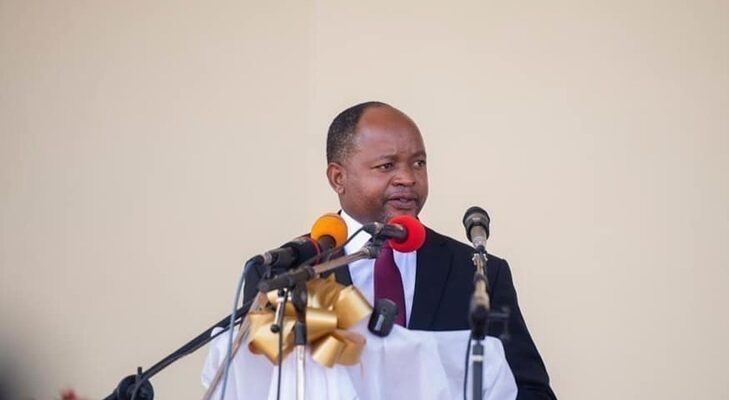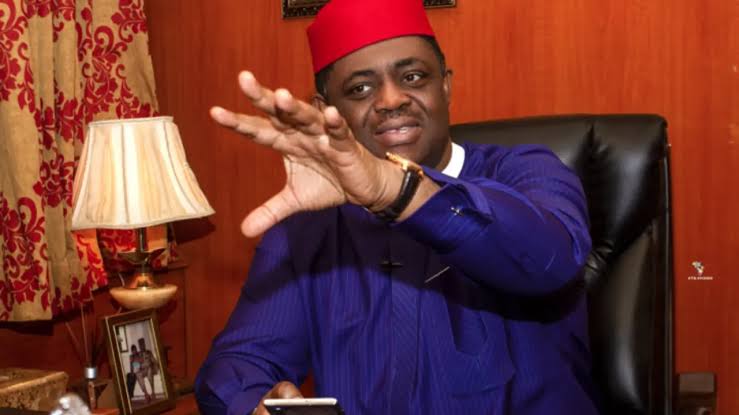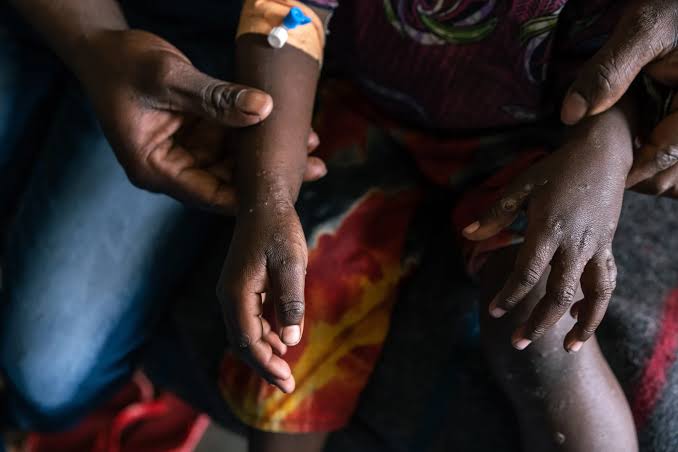Metro
Zambia’s media freedom: Progress amid new threats
Published
5 months agoon
By
Isaac Dachen
For democracy to flourish, a robust policy environment is essential to liberate the media from excessive control and manipulation.
Since the return to multiparty democracy and economic liberalism 33 years ago, Zambia has made notable progress in media freedom, despite some lingering challenges.
Media pluralism, driven by critical reforms, has increased access to various media platforms.
However, gaining access to public media remains an uphill battle for those holding views contrary to the ruling class.
The rise of digital and social media platforms has also added a unique and revolutionary impetus to media freedoms, providing a space for diverse voices that traditional media often failed to offer.
The enactment of the Access to Information (ATI) law is a promising development, ensuring media freedoms through unhindered access to critical public information.
According to MISA Zambia, the ATI law marks “a historic milestone for media freedom and transparency in Zambia after two decades of relentless advocacy and discussion.
“MISA Zambia commended this significant achievement, noting that it reflects “a positive step towards fostering an open and informed society and a transparent government.”
However, concerns are emerging with the introduction of laws such as the Cyber Security and Cyber Crimes Act of 2021 and the proposed amendments to the Independent Broadcasting Authority (IBA) Act, which includes fees for online broadcasting.
These developments cast a dark cloud over the progress made in creating space for media freedom in the country.
President Hakainde Hichilema recently announced that his Cabinet has proposed amending laws to stiffen punishment for those promoting hate speech in the country.
The proposed amendments will be taken to parliament, and the President urged lawmakers “to do the right thing to deter people from promoting discrimination against any grouping.”
Stakeholders, however, feel that hate speech laws are mainly used to clamp down on dissent, making them an affront to media freedom and freedom of expression.
On the other hand, the cybercrime law provides rules of conduct and standards for the use of the Internet, computers, and related digital technologies by the public, government, and private organizations.
It also covers rules of evidence, criminal procedure, and other criminal justice matters in cyberspace.
Critics argue that the law is used by the ruling class to suppress critical voices in the online space.
The Zambian government’s recent announcement that it will require licensing of online media has raised concerns among rights activists, who see it as an infringement on freedom of expression and speech.
Recently, the government revealed plans to revise the IBA Act to regulate online broadcasting and podcasts.
Although the government insists that licensing online media is only meant to protect citizens and victims of cybercrimes, activists warn that such a move would infringe on the right to freedom of expression.
Chief Government Spokesperson, Cornelius Mweetwa, stated that the proposed law would “help fight cybercrime, coordinate cybersecurity matters, develop relevant skills and help promote the responsible use of social media platforms.”
He added that: “The government does not intend to introduce any legislation intended to stifle citizens’ enjoyment of their freedoms of expression and speech on social media.”
However, Richard Mulonga, Chief Executive Officer of Bloggers of Zambia, argued that regulating online media “should be avoided in all cases as it does not align with democratic values.”
He emphasized that: “In as much as we recognise the need for enhanced internet legislation to make the online spaces safe and secure for all, there’s a need for these laws and policies to be democratic.
They must be specific, and they must enhance online rights and freedoms rather than silence citizens’ activities on the internet.”
Molina also noted that the term “abuse of social media” has been weaponized to justify the creation of new “laws that can be used to target citizens on the internet.”
DW TV quoted Modern Muyembe, Media Development Director at the Ministry of Information and Media, as saying that the amended law would require online broadcasting companies to acquire an operating license costing more than US$1,000 annually to operate online.
This, will undoubtedly affect media freedom, as few will afford this amount.
In summary, Zambia’s media freedom is a “mixed bag” where there is room for improvement, but also a risk of regressing if restrictive laws, such as the proposed IBA Act, are enacted.
This story is sponsored content from Zambia Monitor’s Project Aliyense.
You may like
-


Zambia announces second case of Mpox as country battles cholera outbreak
-


Zambian NGOs rate President Hichilema’s reforms as not far-reaching
-


Zambian drug agency declares ex-President Lungu’s daughter wanted
-


Zambian NGO decries persistent corruption, says governance in 2024 marked by mixed fortunes
-


Zambia: Expert warns of food security threat due to climate change
-


Swiss company Mercuria partners Zambia’s IDC in new metals trading firm
Metro
‘Don’t start what you can’t finish’, ex-Nigerian official replies President Tchiani
Published
3 weeks agoon
December 29, 2024
Former Nigerian Aviation Minister, Femi Fani-Kayode, has told President Abdourahamane Tchiani of Niger Republic to refrain from making infantile and puerile allegations that Nigeria is conniving with France and the Lakurawa terrorists to destabilize his country.
Tchiani had, during an interview with Radio-Télévision du Niger on December 25, accused the Nigerian government of using the sect, with the help of foreign security forces notably from France, to wreck havoc in his country, insinuating that President Bola Tinubu had been paid by the France government to allow their military to establish a base in Borno State.
He also alleged that Nigeria, acting in collaboration with the French government and the terrorist group, was responsible for an attack on the Niger-Benin oil pipeline on December 13, 2024, in Gaya, Dosso Region of Niger Republic.
But in a statement he posted on his official X handle on Sunday, Fani-Kayode who is popularly called FFK, said Nigeria does not need the help of France and thr Lakurawa terrorist to destabilize Niger Republic.
FFK insisted that Nigeria is not part of the western powers sponsoring terrorists organizations to wretch havoc on the West African sub region.
“If Nigeria wanted to destabilise Niger Republic, I do not believe that we would need France or any terrorist organisation to do so,” the politician wrote.
He noted that on the contrary, western powers are the ones behind terrorist organizations operating in the region and other parts of Africa.
“I have maintained that the western powers are behind the terrorist groups that have plagued the West African sub region over the last 15 years and for the last ten years I have publicly stated this and given my reasons.
“I am equally certain that Nigeria, being one of the major victims of these terrorist organisations, has had no part in it and that no Nigerian President, past or present, has indulged in such grave and dangerous actions.”
He went on to advice Tchiani against provoking Nigeria with unguarded and infantile utterances capable of stoking Nigeria against his country.
“The Nigerien Military Head of State, Abdourahamane Tchiani, would do well to be careful not to provoke our wrath with his absurd assertions and remain mindful of the fact that the defence budget for his country, Mali and Burkina Faso COMBINED is not up to 25% of Nigeria’s.
“Tchiani’s grave allegations that President Tinubu and NSA Nuhu Ribadu have been bought by the French to destabilise Niger Republic, that our Government is jointly sponsoring a terrorist group with France to do same and that there are French military bases in Nigeria are infantile, puerile, mendacious and asinine.
“It is a squalid attempt by the Nigerien Head of State to sow the seeds of dissention in our country, to alienate our people from constituted authority, to divide our people and to undermine the Tinubu administration,” he added.
“It is also highly provocative and the FG should consider the possibility of taking other more extreeme measures if this reckless provocation continues.
“We are under no obligation to show restraint when we are being undermined and maligned.
Metro
Zambia announces second case of Mpox as country battles cholera outbreak
Published
4 weeks agoon
December 28, 2024
The Zambian Ministry of Health has reported a second case of Monkeypox, popularly known as Mpox, in Kitwe region of Copperbelt Province.
Acting Health Minister, Douglas Syakalima, who made the announcement on Friday during a press conference in Lusaka, revealed that the Ministry is intensifying contact tracing and surveillance to curb further spread of the disease.
Syakalima who also addressed the ongoing cholera outbreak in Nakonde, Muchinga Province, said thus far, seven cases have been confirmed.
“The second Mpox case involves a 34-year-old female from Ndeke, Kitwe, who presented with symptoms including rash, fever, swollen lymph nodes, and oral ulcers on December 21,” Syakalima said at the press parley.
He noted that there was an initial misdiagnosis with chickenpox in Lumwana, North-Western Province, but laboratory tests on December 26 confirmed that it was Mpox.
Syakalima added that the patient’s husband, who works in a neighboring country with confirmed Mpox cases, had experienced similar symptoms earlier this month.
“Both patients are now stable and under close monitoring. A rapid response team has been deployed to trace contacts and prevent further spread,” he said, adding that eight close contacts of the couple are currently under observation, while nationwide surveillance has been heightened.
The Health Minister added that on December 26, five cholera cases were confirmed at Nakonde Urban Clinic with the first three patients, a husband, wife, and their son, admitted on December 24 with symptoms of diarrhea, vomiting, dehydration, and shock.
“Today, two more cases have been reported, bringing the total to seven confirmed cholera cases from the same household,” Syakalima stated.
He explained that Nakonde’s location as a border town with high cross-border movement poses a risk for the disease to spread to other parts of the country.
The Minister however, assured that the Ministry has deployed teams to trace contacts, chlorinate water sources, disinfect affected homes, and activate Incident Management Systems at district and provincial levels while surveillance has been heightened, and contact tracing is ongoing for 33 individuals.
“The government remains committed to preventing further spread of these diseases,” Syakalima assured.
EDITOR’S PICK


Nigeria: Marketers predict further price cut as another refinery begins operations
Oil marketers and the Nigerian Midstream and Downstream Petroleum Regulatory Authority expect refined petroleum product prices to reduce as another...


Kenya: Consumer inflation rises to 3.0% from 2.8%
Kenya’s statistics agency said on Tuesday that Kenya’s consumer price inflation increased slightly to 3.0% year-over-year in December from 2.8%...


South Africa’s Transnet’s half-year deficit hits $117m
Transnet, a state-owned logistics company in South Africa, announced on Tuesday that it had lost 2.2 billion rand ($117.48 million)...


Nigeria, China extend $2bn currency swap deal
A 15 billion yuan ($2 billion) currency-swap arrangement between China and Nigeria has been extended to boost investment and commerce...


Egypt’s central bank maintains overnight rates
As anticipated, Egypt’s central bank has maintained its overnight interest rates, stating that although inflation was predicted to drop significantly...


Illicit flows cost Nigeria, others $1.6bn daily— AfDB
According to the African Development Bank (AfDB), illicit money flows and profit shifting by multinational corporations doing business in Africa...


‘Don’t start what you can’t finish’, ex-Nigerian official replies President Tchiani
Former Nigerian Aviation Minister, Femi Fani-Kayode, has told President Abdourahamane Tchiani of Niger Republic to refrain from making infantile and...


Again, Starlink raises prices of its services in Nigeria
Elon Musk’s satellite internet service provider, Starlink, has again jacked up the prices of its services in Nigeria after an...


Former President of Moroccan club Raja sentenced to 3 years in prison
The former President of Moroccan top club, Raja Casablanca, Mohamed Aouzal, has been sentenced to three and a half years...


Zambia announces second case of Mpox as country battles cholera outbreak
The Zambian Ministry of Health has reported a second case of Monkeypox, popularly known as Mpox, in Kitwe region of...


